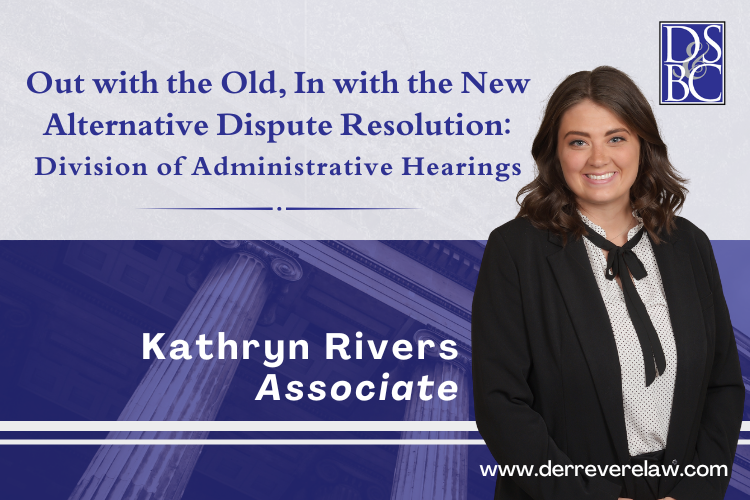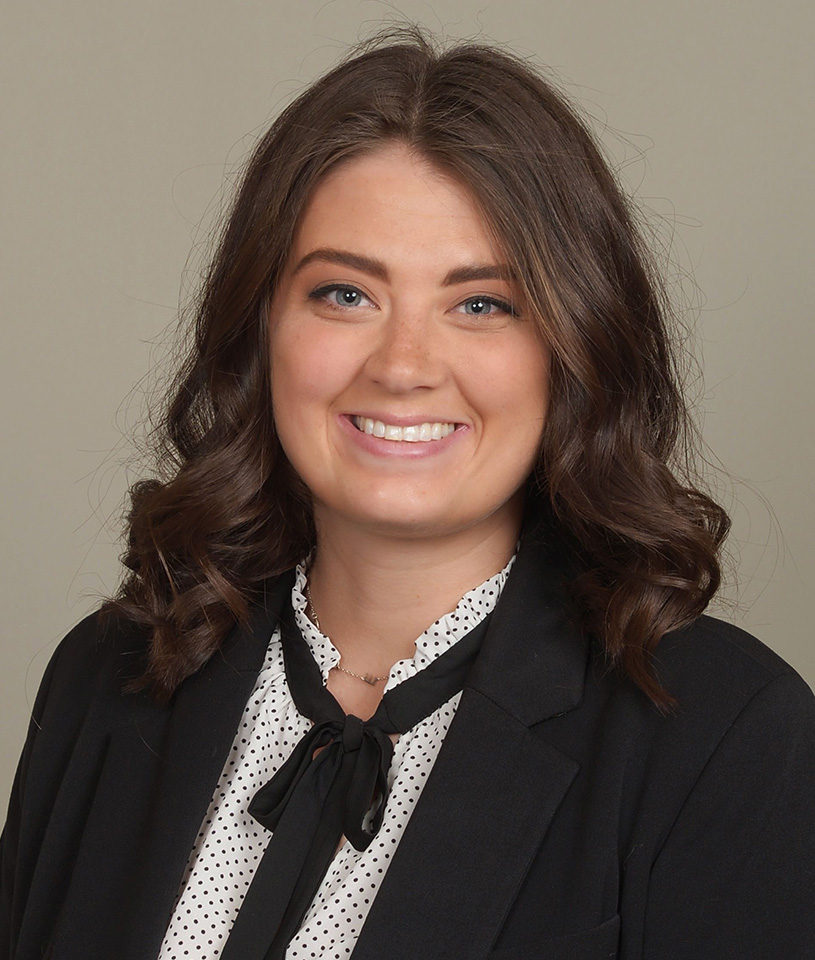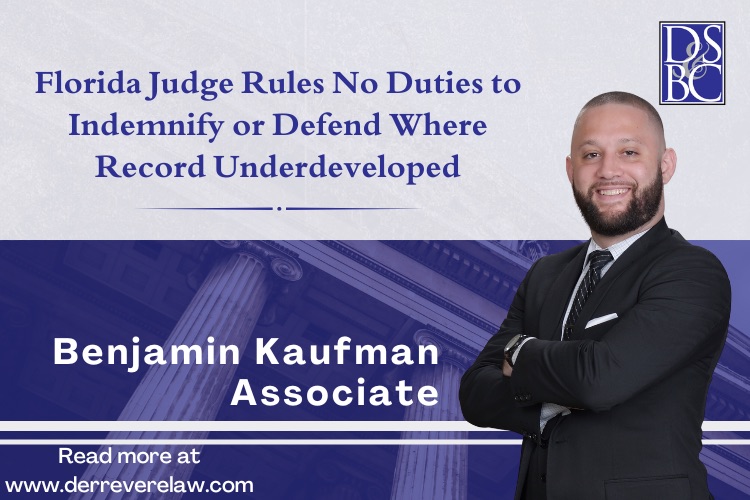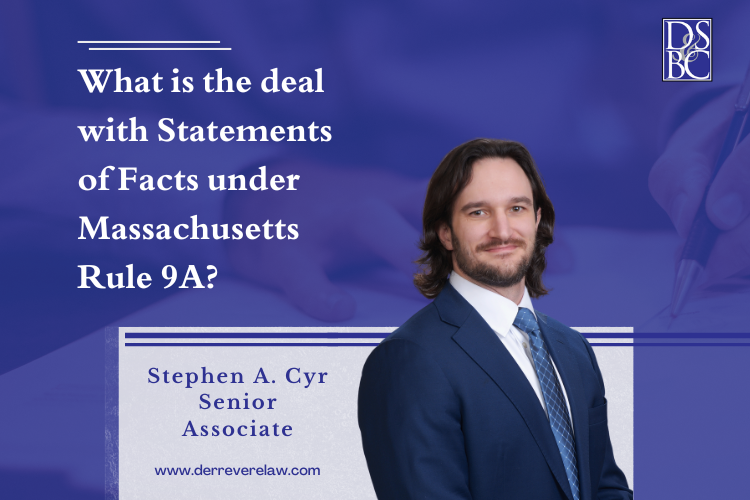Out with the Old, In with the New Alternative Dispute Resolution: Division of Administrative Hearings

Pursuant to the Personal Lines Bulletin from Citizens on December 6, 2022, beginning February 2023, a new form of alternative dispute resolution was implemented by Citizens Property Insurance Corporation. It is a means to avoid lengthy litigation in favor of an expedited track for resolution. Utilizing the State of Florida Division of Administrative Hearings (DOAH), disputes regarding coverage and/or scope and price of claims can now be resolved within four months or less.
What is the Division of Administrative Hearings?
The Division of Administrative Hearings is an independent agency responsible for conducting administrative hearings and handling dispute resolutions. The Florida division provides independent judges to conduct hearings on the matters. All disputes are resolved by judges, without the use of a jury. All matters within DOAH will culminate in a final arbitration hearing held via Zoom over a two-day period. Here, both the Insured and Citizens will have the opportunity to present their case using exhibits, calling witnesses, and presenting expert testimony, just as they would in a regular jury trial; however, the Administrative Law Judge will be the one issuing a final order on the matter after observing the proceedings.
What type of cases can be resolved using DOAH?
Most all of Citizens claim disputes can be resolved utilizing this alternative form of dispute resolution. However, the following claims are not eligible for DOAH:
- Sinkhole claims
- Claims regarding Citizens’ Managed Repair Program
How will you know if a claim is being resolved via DOAH?
Effective February 1, 2023, Citizens will be utilizing new policy endorsements which provides Citizens or the Insured the right to “invoke” the Division of Administrative Hearings as a form of Alternative Dispute Resolution. The Insured, themselves, can invoke this form of ADR by submitting a written request to Citizens. However, often times, the invocation is made in response to an Insureds’ Notice of Intent to Initiate Litigation.
As required by Florida Statute 627.70152, an Insured must file a Notice of Intent to Initiate Litigation if there is a disagreement surrounding an Insureds’ claim. The Insurer then has an obligation to respond to the Notice of Intent to Initiate Litigation within ten business days. It is during this time that Citizens can choose to invoke the Division of Administrative Hearings. Citizens will respond to the Insured stating that in response to the Insureds’ Notice of Intent to Initiate Litigation, that Citizens will be utilizing the Division of Administrative Hearings Alternative Dispute Resolution. Whoever invokes this form of ADR would then file a Written Petition for Formal Hearing with the Division of Administrative Hearing, which outlines the general facts of the case and dispute. Once accepted, both parties, through their legal counsel, will receive a “Notice of Arbitration Hearing by Zoom Conference,” which establishes the date of the final arbitration hearing, as well as several other deadlines to comply with throughout the DOAH process.
What deadlines should you be aware of?
Each Notice of Arbitration Hearing is different, and not all may require these deadlines; however, below is an outline of pertinent deadlines to be aware of in most DOAH matters:
- Filing Notice of Appearance: this must be done by both parties immediately upon receiving notice of the DOAH matter.
- Filing Certified Copy of Policy: not all Administrative Judges require this, but the vast majority order that a Certified Copy of the Insured’s Policy must be filed within thirty days of the initiation of proceedings.
- Discovery Deadline: Discovery of all sorts must be completed ten days prior to the final arbitration hearing.
- Deadline for Written Expert Report: Most reports state a date certain for expert reports to be filed. This often falls within two months of the initiation of the proceedings. Petitioners will be required to file their expert report first, followed by Respondents’ report about two weeks after.
- Pre-Hearing Meeting of Parties: No less than fifteen days prior to the final hearing, the parties must meet and confer to:
- (a) Discuss the possibility of settlement;
- (b) Stipulate to as many facts and issues as possible;
- (c) Prepare the pre-hearing stipulation required by this Order;
- (d) Examine all exhibits proposed to be offered into evidence at the hearing;
- (e) Furnish the opposing party the names and addresses of all witnesses who may testify at the hearing; and
- (f) Complete all other matters which may expedite the hearing in this case.
- Pre-Hearing Stipulation: No less than seven days prior to the final hearing, the parties must submit a joint pre-hearing stipulation, that includes:
- (a) A concise statement of the nature of the controversy;
- (b) A brief, general statement of each party’s position;
- (c) A list of all exhibits to be offered at the hearing, noting any objections thereto, and specifying the grounds for each objection (objections not noted are waived);
- (d) The names and addresses of all witnesses to be called at the hearing by each party, with the field of expertise designated for any expert witness;
- (e) A concise statement of those admitted facts requiring no proof at hearing;
- (f) A concise statement of those issues of fact which remain to be litigated;
- (g) A concise statement of those issues of law on which there is agreement;
- (h) A concise statement of those issues of law remaining for determination by the ALJ;
- (i) A concise statement of any disagreement as to the application of the rules of evidence;
- (j) A list of all pending motions or other matters which require action by the ALJ;
- (k) An estimate of the length of time required for the hearing; and
- (l) The signature of all parties or their counsel.
- Exhibits: No later than seven days prior to the hearing, the parties must number and file the exhibits they plan on utilizing at the final arbitration hearing.
DOAH vs. Litigation – key differences to be aware of:
The key component that differentiates DOAH from typical litigation is the timing aspect. The goal of utilizing DOAH is to reduce the time that it takes for claim disputes to be resolved. With this, comes several practices and procedures that differ from typical litigation.
- Responsive Pleadings: A Respondent may, but is not required to, file a responsive pleading to the petition.
- Discovery: While discovery is still governed by the Florida Rules of Civil Procedure and the Florida Evidentiary Code, the Administrative Law Judges have the discretion to amend these rules as needed. Once main difference is that in serving requests for discovery, including interrogatories, admissions, and production, the responding party now only has fourteen days to respond instead of the typical thirty.
- Motion Practice and Hearings: Most motions are resolved without the need for a hearing. Unless explicitly ordered by the Administrative Judge, when a motion is filed, the judge will read the contents of the motion and response (if any) and either: 1). Order a hearing to occur within the next five (5) days, or 2). Rule on the motion based on its merits without the need for a hearing. The vast majority of motions get ruled on without a hearing. Additionally, if a motion is “agreed to” the parties must expressly state what is agreed upon and the judge will issue their order accordingly. Submitting a separate agreed order is not the proper procedure in DOAH.
- Meet and Confer Requirement: Any party filing a motion must include a “Certification of Good Faith Meet and Confer”, which outlines the attempts at discussing the contents of the motion with the opposing party and the outline of those attempts. Any motion that does not reflect this certification will likely be denied.
- Expert Reports: All expert reports must be filed on the DOAH docket and include the following information:
- (i) a complete statement of opinions the witness will express and the basis and reasons for them;
- (ii) the facts or data considered by the witness in forming them;
- (iii) any exhibits that will be used to summarize or support them;
- (iv) the witness’ qualifications, including a list of all publications authored in the previous ten years;
- (v) a list of all other matters in which the witness testified as an expert at trial or by deposition in the past four years; and
- (vi) a statement of compensation to be paid for the study and testimony in the case.
- Final Hearings: The use of final arbitration hearings differs from a typical jury trial. The parties will meet via Zoom at the final hearing. There will be no jury present and the administrative law judge will be the governing body and issue the final order. The parties can present their evidence using exhibits and testimony; however, the use of objections is more limited and not used as abundantly.
The Division of Administrative Hearings is a relatively new form of alternative dispute resolution. As there is not much research or statistics on it, it remains to be seen whether or not this becomes more utilized than regular litigation and how effective it will be. For more information on the Division of Administrative Hearings, see https://www.doah.state.fl.us/ALJ/.




